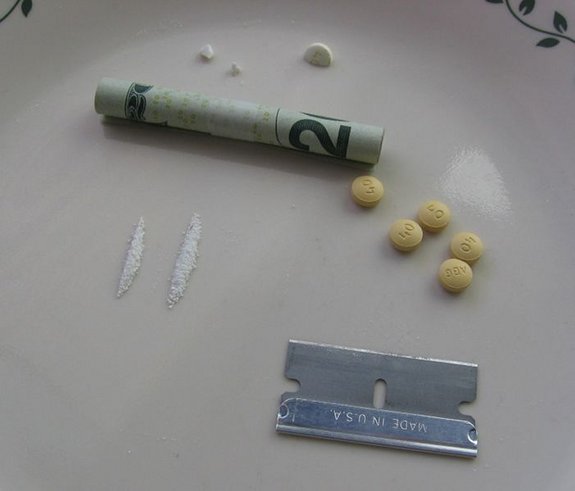
OxyContin tablets crushed into powder for snorting. (Photo: Wikimedia Commons.)
By Ralph De La Cruz
Florida Center for Investigative Reporting
Floridians who have had a root canal in the last few days have probably noticed: the prescription drug world has changed in the Sunshine State.
The state is in the midst of a multi-pronged, broad-based approach to stymie the free flow of prescription painkillers — a flow that has earned Florida the monicker “The Oxy Express.”
On Thursday, the state launched its prescription drug database — which tracks who prescribes and buys a controlled substance, such as Oxycodone.
The database’s launch will be the newspaper headline today because of the program’s notoriety.
Despite the database having near-unanimous support, one of Gov. Rick Scott’s early moves as the state’s chief executive was to propose shutting down the database, which was birthed during the administration of his predecessor, Charlie Crist.
Scott’s decision prompted calls from law enforcement and elected officials within the state and around the country (42 other states have similar databases), pleading with Scott to reconsider.
Finally, in mid-April, Scott gave in and approved the database.
So it’s not surprising that the database’s launch would be in the spotlight. But it’s actually just one part of a comprehensive strategy. Doctors are now prohibited from dispensing pain pills from clinics. And the standards for getting a license to operate a pharmacy have toughened, with background checks now required for pharmacists, operators and employees.
The strategy involves changes all the way down to how doctors write prescriptions.
Customers who went to Walmart pharmacies on Thursday to have pain-pill prescriptions filled were handed a note that read: “Effective 08-29-11, the state of Florida requires all control substance prescriptions to be written on counterfeit-resistant prescription blanks.”
And as Lizette Alvarez writes in The New York Times, that broad approach seems to be having an impact. More than 400 clinics have either been shut down or closed on their own. And perhaps the most telling: On Florida’s streets, the price of Oxycodone has almost doubled.
